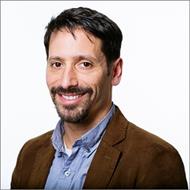SUNY ESF
Science & Environmental Communication and Public Relations Management
Certificate of Graduate Study
Now, more than ever, the world is ready for leaders who can tackle complex environmental challenges.
Are you ready to switch careers or step forward in your current profession? Make your move with us and realize 21st century rewards. Our certificate of advanced study in Environmental Leadership (no GRE required!) is perfect for people who want to roll up their sleeves and drive sustainable change in any setting — corporate, non-profit, or government. Enroll today!
Program Learning Outcomes
Students in our fully online program will develop leadership skills in the following areas:
- Advocating for a values-driven, sustainable culture
- Staying current with ever-changing, but absolutely critical local, regional, national, and international policies
- Facilitating productive decision-making even in challenging situations
- Selecting appropriate tools, methods, and approaches to address society's most challenging environmental problems
- Identifying team members and facilitating collaborative problem-solving
- Communicating and problem-solving across cultural, organizational, and political boundaries
Earn our Graduate Certificate and Step-Up Your Credentials (3 courses)*
The graduate certificate in Environmental Leadership requires the completion of three courses:
Understand the role of values, science, and alternative ways of knowing in environmental problem-solving. Apply the tools of environmental ethics and philosophy to improving dialog, debates, and decision making in the context of complex environmental challenges.
Map the institutional context of an environmental problem. Identify applicable local, regional, national, or international policies and the processes by which they are made and changed. Identify strategic leverage points for driving sustainable change.
All courses are offered online and designed to accommodate working professionals' schedules. Course activities include readings, instructor-developed video presentations and podcasts, guided exercises, online discussions, and completion of class exercises toward a final project. Students regularly engage with the professor in online discussions, synchronous learning sessions, and phone or online office hours.
* We understand flexibility is important. Want to test the waters and enroll in just one course? No worries! Pick the course that sounds most interesting and click "register for a course."
Instructor and Program Chair
 Dr. Paul Hirsch, Associate Professor, Environmental Studies, ESF
Dr. Paul Hirsch, Associate Professor, Environmental Studies, ESF
Paul Hirsch is an Associate Professor in the Department of Environmental Studies at SUNY ESF and is a recognized expert in his field. A frequent publisher in peer-reviewed journals, he is also sought after by main stream publications for his expertise and views on sustainability. For example, in a recent article in Women's World Daily Hirsch discussed his views on "consumers, collaboration and creativity" and talked about "three reasons to be optimistic about fashion's push toward sustainability."
Hirsch has played a facilitative role in a variety of sustainable change processes, both in the United States and internationally, working for organizations from the New York State Department of Environmental Conservation to the Tanzanian Department of Wildlife Management, the Peruvian Society for Environmental Law, and the Center for Natural Resources and Environmental Studies in Vietnam.
Dr. Hirsch has served as a Board Member with the Association for Interdisciplinary Studies, a Senior Research Fellow with the National Council for Science and the Environment, and a Fellow with Planet Forward at George Washington University. He teaches courses in environmental philosophy, policy, and decision-making.
Request Information
Dr. Paul Hirsch
Associate Professor
Environmental Studies, SUNY ESF
pahirsch@esf.edu
Have a question?
Our Open Academy team or Program Chair can answer questions about our graduate certificates.
EmailAdmission
What are all admission requirements for students in this program? Please note those that differ from the institution's minimum admissions requirements and explain why they differ.
Applicants will apply through the ESF Graduate Office and will be reviewed by the program chair on a rolling basis. In the admissions process, we will pay deference to people who have qualities, attributes, and experiences that may not fit squarely into the standard graduate admission requirements. Admission requirements for the program include:
- Transcripts of an earned bachelor's degree from a recognized institution;
- The graduate application;
- A nonrefundable $60(US) application fee;
- Three letters of recommendation from individuals who can attest to the applicant's skills and potential as a leader / facilitator / problem-solver;
- A resume that communicates the applicant's academic, professional, or community-level experience;
- A statement of goals for the applicant's participation in the certificate program; and
- Students whose primary language is not English are also required to provide evidence of English language proficiency.
The admissions requirements are mostly the same as for all graduate applicants. Key differences from the institution's minimum admission requirements include: 1) the requirement for a "B" average during junior and senior year may be waived to make the program available to students who can demonstrate leadership potential through other means; 2) GRE scores are not required for the program application, which is consistent with the application requirements for other Advanced Certificate programs at ESF and those at other institutions; and 3) web page and other program information/materials will represent requirements for letters of recommendation, resume, and statement of goals in a way that resonates with and appeals to applicants from diverse and non-traditional backgrounds such as to community and citizen-leaders, as well as applicants with more traditional academic / professional experiences.
